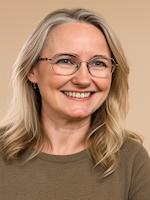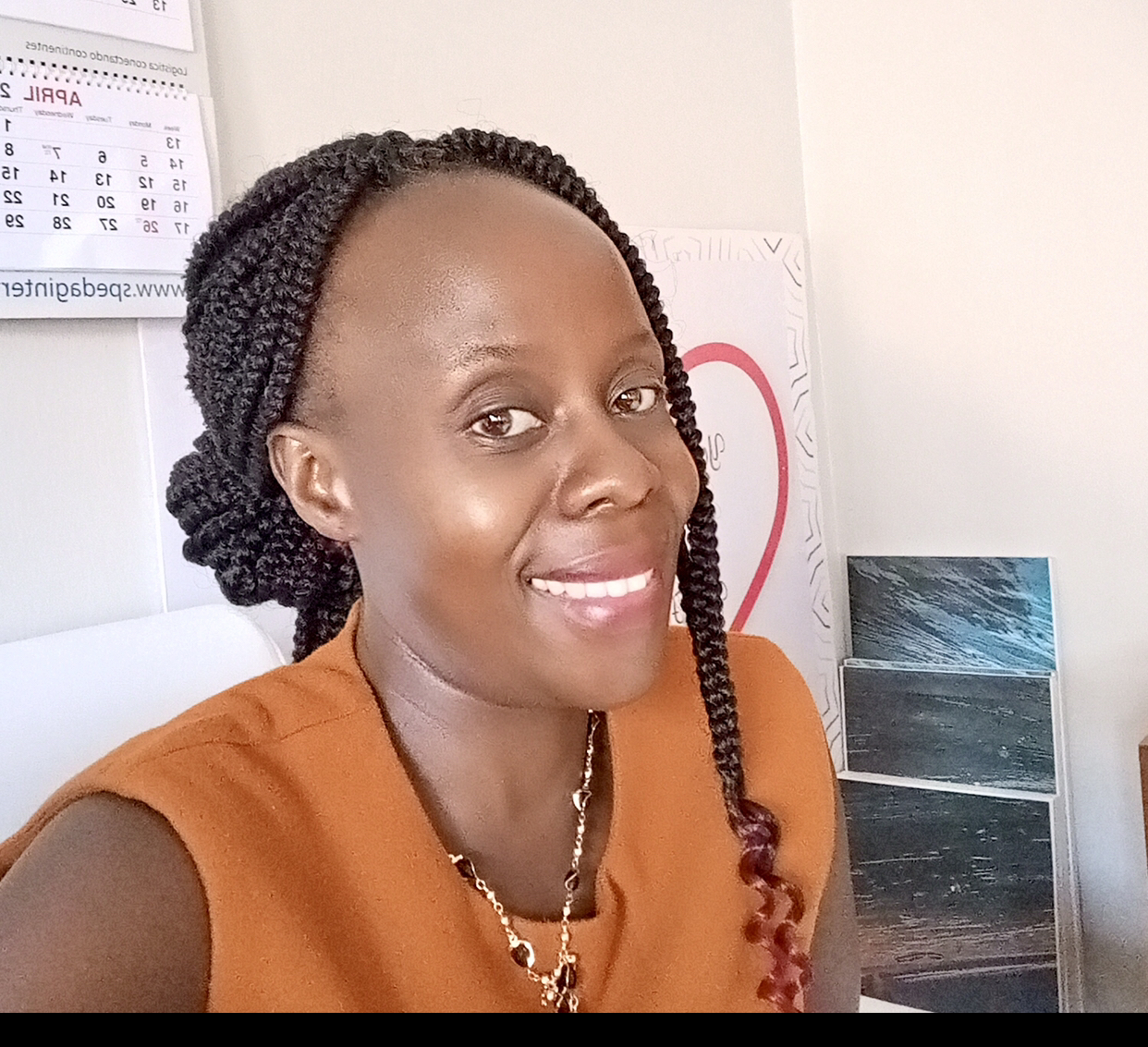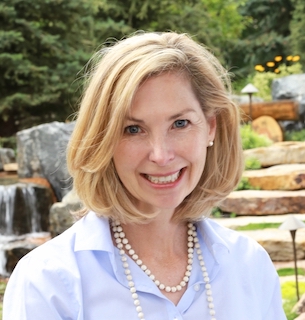Global Clubs: Innovative Collaboration Across Borders
,
Colorado Convention Center, Bluebird Ballroom Lobby, Table 11
Presenters




Session description
Purpose & objective
Purpose:
The purpose of the Global Club presentation is to share how teachers and students around the world with varying resources can utilize minimal technology to share cultures and successfully collaborate on projects that integrate cultural perspectives. This connection and communication broadens understanding and positively impacts goals for personal development and growth.
Objectives:
The objective of the Global Club presentation is to demonstrate the significant impact of connecting, communicating, and collaborating with peers in other countries with different and unique perspectives and resources. The presentation will share how Club Leaders and students are able to utilize technology to complete collaborative projects together for cultural understanding, exchange, and learning.
-Education and Infrastructure Challenges
Club leaders will share how they are able to navigate infrastructure challenges where wifi is limited. The audience will learn how to identify tools for boosting their educational capability. The audience will also learn how to achieve significant learning engagement with limited technology.
Students will share how they have observed the problem-solving of technical challenges and have learned by example. The audience will hear the students’ perspective that education can be successfully achieved with minimal technology, understanding of digital tools, communication techniques, and a strong desire to learn.
-Technology Intervention- Teachers/Club Leaders
Integrating technology into global clubs for teachers enhances communication, collaboration, and the overall effectiveness of these clubs. Here are some technology interventions and strategies that the JDO global club uses:
1. Online Collaboration Platforms: Utilize online collaboration platforms and project management tools like Miro and Google Workspace (formerly G Suite) to facilitate communication and document sharing among club members. These platform allow for real-time chat, video conferencing, file sharing, and task management.
2. Video Conferencing : clubs use video conferencing tools such as Zoom or google meet for virtual meetings and discussions. Video conferencing brings teachers from different parts of the world together in a face-to-face setting, fostering a sense of connection and community.
3. Collaborative Document Editing: Platforms like Google Docs and sheet enable real-time collaborative document editing. Teachers can work together on project activities regardless of their geographical locations.
4. Online Learning Management Systems: Clubs use Google classroom to centralize club resources, training materials, and discussions. .
5. Online Surveys and Feedback Tools: clubs use Google Forms and inhouse google sheet and slide templates to collect feedback from club members. This data can help tailor club activities and resources to meet their needs and preferences.
-Technology Intervention-Students
JDO global clubs focus on digital accessibility, equity, and the privacy and security of participants. The Club model also emphasizes providing guidance and training to students on how to use these tools effectively and responsibly for successful and safe collaboration and learning experiences. The interventions that are written for the teachers are the same for the students.
- Models employed
The JDO Global Club model is based on three frameworks:
1. Universal Design for Learning (UDL):
the UDL framework to ensure that the Global club curriculum is accessible, engaging, and effective for a diverse range of learners, including those with varying levels of technology access. it also ensure Multiple Means of Representation, which means the JDO club provides content in various formats to accommodate different learning styles and technology capabilities that offers multiple means of engagement such as collaborative projects, discussions, and experiential learning activities, tailored to the resources available to each club .The Global club model ensures multiple means of expression that allows students to demonstrate their understanding through a variety of means, whether digital or non-digital.
2. Differentiated Instruction:
the curriculum is tailored to meet the specific needs of individual learners and schools, taking into account their technology resources with tiered activities that offer different levels of complexity, allowing students to choose based on their technological capabilities.
additional support and resources are provided for technology-restricted schools to help them participate effectively.
3. Collaborative Learning Models:
The model ensures Promoting collaboration among students from different schools and backgrounds. It also encourages peer-to-peer teaching and learning, where students from technology-advanced clubs can also mentor those from technology-restricted schools. The global club model also organize mixed groups of students to work together on projects, fostering cooperation and understanding.
-Lesson plans or instructional activities/strategies employed
Club leaders will share examples of electronic projects that have been specially designed to utilize digital tools that enable students to connect, communicate, and collaborate on projects that are culturally themed for relevant and engaging interactions. Club leaders will share the importance of completing professional development training to build knowledge and confidence in utilizing digital tools prior to starting the club. Digital Tools that are commonly utilized for Global Clubs include the following::
Google Tools such as Google Docs for collaborative writing; Google slides for collaborative presentations of Global topics; Google Sheets on data driven projects like weather around the world; Google sites for collaborative website creation; Google meet using breakout rooms for global connections; Google forms for interactive surveys and quiz and Google Classroom for effective communication.
Flipgrid is indeed a valuable method for connecting with global clubs in different time zones. it is very effective in Asynchronous Communication between the clubs giving opportunities to the students to get a feel of live one on one connection
Book Creator
Global club Kahoots
Collaborative video making through Canva
Thunkable app creator
Pixton + Google slides for comic creations
Stop motion studio for creating stop motions videos.
Based on the specific learning environment, Club leaders share how they are guided to utilize a variety of techniques and tools for student engagement and program participation.
-Evidence of Success-
JDO Clubs measure success in various parameters:
1. Cross-Cultural Understanding: This is fostered through cross cultural live meetings and asynchronous communication using various tools. Students that are part of the Global clubs enjoy global meetings with peers across the globe sharing their learning on the shared topics.
2. Collaborative projects : The successful completion of collaborative projects involving club members from different countries or backgrounds is a tangible sign of success.
Examples include:
a) Shared Global Slides of the local games.
b) A beautiful collaborative site created by the students on the landmark of the partnering countries.
c) A collaborative padlet on fables and tales of different countries.
3. Increased Technological Proficiency(inclusivity in clubs): Evidence can be seen in the improved technological skills of club members from no technology knowledge to advanced knowledge of the tools.
4. Impact on Personal Growth: Global club members have shown amazing improvements in communication skills, leadership abilities, and global awareness. which makes them informed global citizens
5. Long-term Impact: The long-term aim of Global clubs is to shape future leaders and global citizens.
Evidence of Success/ Examples of Student Work are provided in the application URL.
Outline
Outline of Content and Activities:
Global Club Leaders will present examples of
-Club projects
-Global Club Interactions
-Outcomes
The audience will be able to view example projects and have peer-to peer interactions with Club leaders to understand the project approach, device-based activities, obstacles, and solutions for successful connection, communication, and innovative collaboration across borders.
Global Club Students will present the following:
-Examples of their project work
-Their experiences and their perspectives in being able to engage, learn, and collaborate with peers in other countries and cultures.
Live and Video recordings of peer-to-peer club student engagement will be shared with the audience. The audience will be able to interact with global club students directly to inquire and discuss the impact of collaboration across borders on their perspective.
Half of the designated time (45 minutes) will be devoted to the adult Global Club Leader presentation and audience engagement. The other half of the designated time (45 minutes) will be devoted to Global Club Student presentations and audience participation.
Supporting research
JDO creates tailor-made resources for participating Global Clubs based on their specific needs, functionality, and strategies aligned closely with the Global Club objectives and goals. These tailor made resources are part of the club success:
This live link will be included in our URL.
https://drive.google.com/drive/folders/1ICvZldXC5kb7DpNzw3BML_BN61H_mAF9?usp=drive_link
The Global clubs also focus on creating informed digital citizens. Mrs. Amelia Archer ( Presenter) has created interactive digital books that are incorporated into the club curriculum.
In creating the Global Club curriculum, deep research was made using credible resources in the education industry. These resources include but are not limited to the following:
Edutopia: Edutopia is a website that offers a wealth of articles, videos, and resources on education, including technology integration, project-based learning, and teacher professional development.
Google for Education: Google's educational resources, including Google for Education Training Center, offer free courses and materials to help educators leverage Google's tools for collaboration and learning.
These live links are provided in the Additional Resources URL:
https://applieddigitalskills.withgoogle.com/s/en/home
https://aiyprojects.withgoogle.com/
EdSurge: EdSurge is a website that covers the intersection of technology and education, offering articles, product reviews, and resources for educators.
EdTech Magazine: This magazine offers articles and insights into educational technology trends and best practices.
Edutopia's "Technology Integration" Section: Edutopia's technology integration section includes articles, videos, and tips for educators looking to enhance their tech integration skills.
Session specifications
Collaborator
- Use collaborative tools to expand students' authentic, real-world learning experiences by engaging virtually with experts, teams and students, locally and globally.
Knowledge Constructor
- Students curate information from digital resources using a variety of tools and methods to create collections of artifacts that demonstrate meaningful connections or conclusions.
- Students use digital tools to connect with learners from a variety of backgrounds and cultures, engaging with them in ways that broaden mutual understanding and learning.
 Return
Return Participate and share: Poster
Participate and share: Poster  Trips and Tours
Trips and Tours